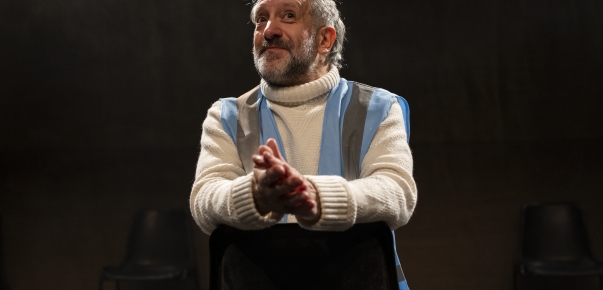“Hair has always been about storytelling” | 10 Mins with Sophia Khan
6 Oct 2023
Sophia Khan has been working in theatre for 12 years, before which she worked in the live music industry. She is currently Costume Supervisor and Hair Consultant on Choir Boy.
Over a cup of mint tea, Sophia spoke to us about her journey and her career so far.
My hair journey started when I was young, coming from a long line of hairdressers and barbers in my family, hair has always been a main event. I come from a very mixed family with a large range of hair types and textures ranging from straight to 4c.
It was easy growing up to find a love for hair and I learnt quickly how to work with different textures and densities. This is something that has heavily informed what I chose to do as a career.
Sophia Khan, Choir Boy Costume Supervisor and Hair Consultant
How is hair being used to tell a story in Choir Boy?
Working with a group of young Black men and talking to them about the importance of hair for them at a time when Afro hair in the industry isn’t understood when there is a lack of education around it.
Also exploring how their character is shaped by the style of hair they have is a way of really getting to know not only the actor but the characters they play as well.
It’s exciting to see how an actor who is playing a character so different to them can make connections and physically start to embody their character through their hair. I see myself as a facilitator in that process being able to bring it together and make it happen.

What is your approach to that process?
What I do is quite different; I offer consultations with each of the actors as well as meetings with the director and designer. It’s important to have those conversations particularly when working with directors and designers who may not have any experience with afro-textured hair themselves.
In those meetings, I focus on what would happen in the story and compare it to how that would be in reality, for example, if a character with textured hair has just gone to bed or just woken up it is important to see that character wearing a bonnet or a durag to protect their hair as they probably would in reality. It’s about normalising that and building a holistic world around the character that people will relate to.
For me it’s about being as authentic as possible, theatre is predominantly run by white middle-class people who may not have close relationships with people from global majority communities, so it is important to have someone who specialises in what I do to come in and work with everyone in the production in a holistic way, making the characters on stage as real and tangible as possible.

Do you feel like we are moving in the right direction?
Slowly things are changing in the industry. There is still a long way to go, things have changed from when I started, and we are getting to a place now where we can speak freely about the barriers faced by actors with afro and textured hair and the lack of educated specialists.
The first step we need to take is to admit where the gaps in knowledge and understanding are in these instructions. Professionals like me who have expertise in working with textured hair shouldn’t be seen as a bonus but as a necessity, we should be involved in the process much earlier on.
What advice would you give to anyone in the industry who is putting on a production with Black or brown characters?
It should be okay to put your hands up and admit ‘I don't know’, if you have people in your cast with textured hair and you know nothing about it, you can educate yourself. When working on a period piece set in Europe, there is a lot of research that goes into the accurate portrayal of a character; that same approach needs to be taken when working with characters who have afro hair and in global majority stories.
Choir Boy isn’t a period piece so how are you using hair and costume to set the scene and tell the story? Thinking about how individuals are treated in this particular story, set in an American prep school.
The setting is so important, which means it’s equally important to get the costume right. When it comes to the hair, we want to show the individuality of each character; we also want to convey a celebration of the versatility of how the boys’ style their hair. Everyone uses their hair to express themselves and, like in any school, some people will use it as a tool to conform and impress their parents or teachers and others will use it to express themselves and rebel. They are not in a typical British school and that’s important to bear in mind, the characters are all individually facing their own challenges in the story.
Listen to a snippet from our interview with Sophia, including her advice for costume, hair and makeup professionals who are just starting out:


